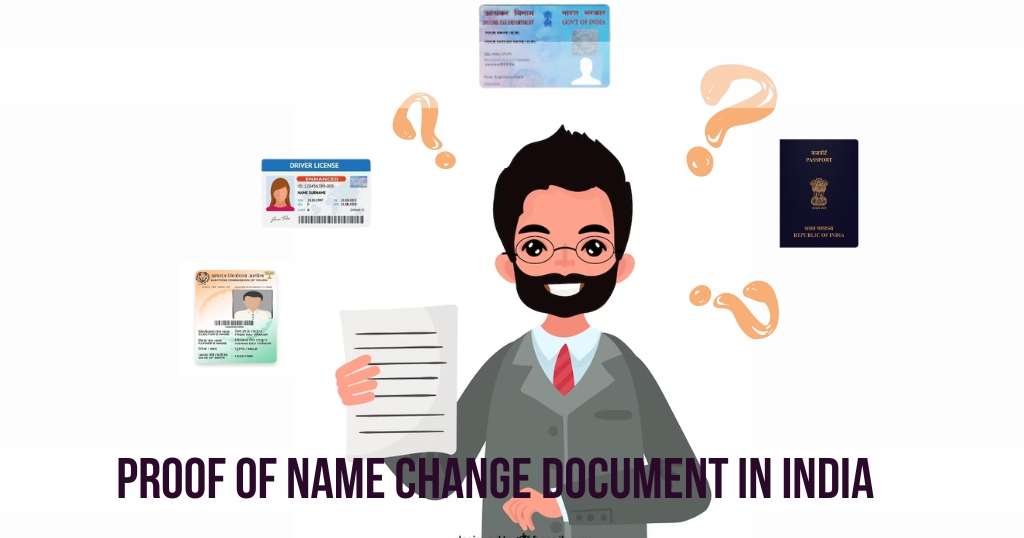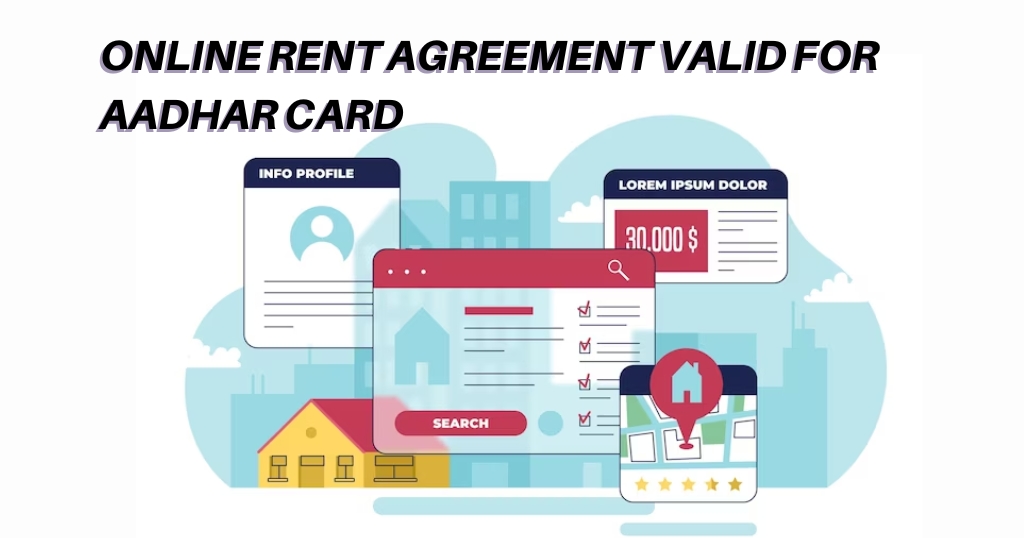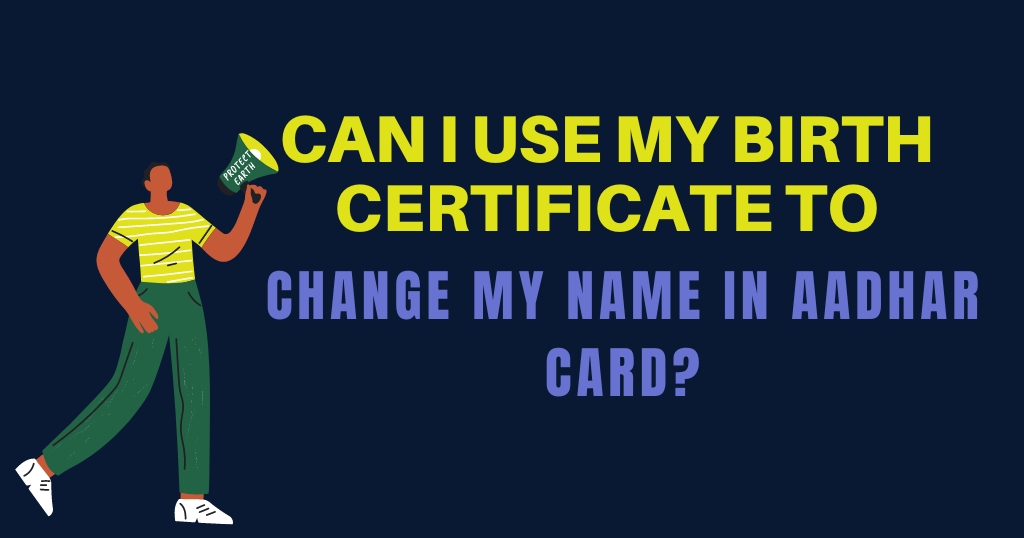-
How To File A Consumer Complaint Forum?


Table Of Contents
- Understanding Consumer Complaint Forums
- Identifying Valid Grounds for Complaint
- Gathering Documentation
- Attempt to Resolve Amicably
- Researching Appropriate Forum
- Preparing Complaint Application
- Submitting the Complaint
- Attending Hearings
- Receiving the Order
- Enforcing the Order
- Conclusion
In today’s market, consumers wield significant power. Yet, there are instances where products or services fall short of expectations, leaving consumers feeling dissatisfied or even cheated. Fortunately, consumer protection laws exist to safeguard consumer rights. One such avenue for seeking redressal is through consumer complaint forums. If you’ve encountered a problem with a product or service and are considering filing a complaint, this guide will walk you through the process step by step.
Understanding Consumer Complaint Forums
Consumer complaint forums, also known as consumer dispute redressal commissions or consumer courts, are quasi-judicial bodies established under the Consumer Protection Act. Their primary objective is to provide consumers with a platform to address grievances against sellers, manufacturers, or service providers.
Identifying Valid Grounds for Complaint
Before initiating the complaint process, ensure that your grievance falls under the purview of consumer protection laws. Common grounds for complaints include:
- Defective products
- Poor quality of services
- Unfair trade practices
- Overcharging or billing discrepancies
- Non-compliance with warranty/guarantee terms
Gathering Documentation
To strengthen your case, gather all relevant documentation, including:
- Purchase receipts or invoices
- Warranty/guarantee documents
- Correspondence with the seller/service provider
- Photographs or videos demonstrating the issue
- Any other evidence supporting your claim
Attempt to Resolve Amicably
Before resorting to formal legal action, consider attempting to resolve the issue through negotiation or mediation. Contact the seller or service provider directly and clearly articulate your concerns. Often, businesses are willing to address legitimate grievances to maintain customer satisfaction.
Researching Appropriate Forum
Depending on the nature and value of your complaint, you may need to file it with the appropriate consumer forum. These forums are categorized based on the value of the goods or services involved:
- District Consumer Disputes Redressal Commission (for claims up to ₹20 lakhs)
- State Consumer Disputes Redressal Commission (for claims between ₹20 lakhs and ₹1 crore)
- National Consumer Disputes Redressal Commission (for claims exceeding ₹1 crore)
Preparing Complaint Application
Once you’ve identified the relevant forum, prepare a formal complaint application. The application should include:
- Your personal details (name, address, contact information)
- Details of the opposing party (name, address, contact information)
- Description of the grievance, including relevant dates and events
- Supporting documents/evidence
- Relief sought (compensation, replacement, refund, etc.)
Submitting the Complaint
Submit the complaint application along with the requisite number of copies (usually three) to the designated consumer forum. Pay the prescribed filing fee, which varies based on the value of the claim and the forum’s jurisdiction.
Attending Hearings
After receiving your complaint, the consumer forum will issue a notice to the opposing party, directing them to respond. Subsequently, the forum will schedule hearings to allow both parties to present their arguments and evidence. It’s essential to attend these hearings diligently and adhere to the forum’s procedures.
Receiving the Order
Following the conclusion of hearings, the consumer forum will deliberate on the matter and issue its order. The order may entail:
- Dismissing the complaint if deemed frivolous or lacking merit
- Directing the opposing party to provide compensation, replacement, or refund
- Imposing penalties for unfair trade practices or negligence
Enforcing the Order
If the opposing party fails to comply with the forum’s order voluntarily, you may need to initiate enforcement proceedings. This typically involves seeking assistance from the forum or a civil court to enforce the order’s implementation.
Conclusion
Filing a consumer complaint forum empowers consumers to assert their rights and seek redressal for grievances. By following the steps outlined in this guide and presenting your case effectively, you can navigate the complaint process with confidence and achieve a favorable outcome. Remember, consumer protection laws exist to safeguard your interests, so don’t hesitate to assert them when necessary.
-
Name Change And The Impact On Passport And Visa Applications In India
Changing one’s name is a significant decision that can have various implications on personal, professional, and legal aspects of life. When it comes to passport and visa applications in India, a name change can have a direct impact on the process. This blog explores the effects of name change on passport and visa applications, along with the necessary steps to ensure a smooth transition.
I. Understanding the Impact of Name Change on Passport and Visa Applications a. Passport applications:
- Personal identification: Passports serve as crucial identity documents, and any change in name requires an update in the passport.
- Legal compliance: Passport applications must align with the legal requirements of the country, including the correct and current name of the applicant.
- Consistency across documents: It is essential for all official documents, including passports, to reflect the same name to avoid confusion and discrepancies.
b. Visa applications:
- Consistency with passport: Visa applications typically require the applicant’s passport details, including the name, to match the information provided in the passport.
- Proof of name change: If the name in the passport and visa application differs due to a recent name change, supporting documents such as a deed poll or marriage certificate may be required.
Also Read – how to change name in passport after marriage in india
II. Steps to Ensure a Smooth Passport and Visa Application Process after a Name Change a. Verify name change requirements:
- Research the specific guidelines and procedures set by the Passport Seva Kendra (PSK) or Regional Passport Office (RPO) for name change applications.
- Check if additional documents, such as a deed poll or marriage certificate, are necessary to support the name change.
b. Update identity documents:
- Obtain a deed poll or similar legal document confirming the name change.
- Gather necessary documents, including the original and self-attested copies of the deed poll, proof of address, proof of identity, and other supporting documents specified by the PSK or RPO.
c. Schedule an appointment:
- Visit the official website of the Passport Seva portal (www.passportindia.gov.in) and schedule an appointment at the nearest PSK or RPO.
- Fill out the passport application form accurately, ensuring the new name is provided.
d. Attend the appointment:
- Bring all required documents, including the deed poll and supporting documents, to the appointment.
- Submit the application and undergo any necessary biometric procedures.
e. Follow up on the application:
- Regularly check the status of the passport application online.
- Respond promptly to any communication or additional document requests from the PSK or RPO.
III. Considerations and Tips for a Successful Transition a. Timing:
- Plan the name change well in advance to allow sufficient time for updating documents and obtaining a new passport before any impending travel.
b. Consistency:
- Ensure that the new name is consistently reflected across all official documents, including the passport, visa applications, and other identification documents.
c. Communication with authorities:
- Notify relevant authorities, such as visa offices or consulates, about the name change to prevent any issues during visa application processes.
d. Professional guidance:
- Seek legal advice or consult professionals who specialize in name change procedures and passport/visa applications to ensure a smooth transition.
Conclusion: Changing one’s name can have a significant impact on passport and visa applications in India. It is crucial to understand the requirements, follow the correct procedures, and provide the necessary supporting documents to ensure a successful transition. By taking the appropriate steps and seeking professional guidance when needed, individuals can navigate the name change process smoothly and avoid complications during passport and visa applications.
Written by Naina
-
What is Proof of Name Change Document in India: A Comprehensive Guide

In India, changing one’s name requires submitting specific documents as proof of the name change. These documents serve as evidence when updating official records and identity documents. Whether it’s due to marriage, divorce, religious conversion, or personal preference, understanding the proof of name change requirements is essential. In this blog, we will explore the different types of proof of name change documents in India and their significance in the legal and administrative processes.
The Importance of Proof of Name Change Documents
Proof of name change documents play a crucial role in establishing the legal validity of a changed name. These documents provide evidence that an individual has legally changed their name, ensuring that the updated name is recognized and accepted by various authorities, including government departments, educational institutions, banks, and other organizations. Having the appropriate proof of name change documents is essential for obtaining updated identity documents such as passport, Aadhaar card, PAN card, and others.
Types of Proof of Name Change Documents
Marriage Certificate:
- In the case of a name change after marriage, a marriage certificate serves as proof of the change. It is issued by the competent authority responsible for registering marriages. The marriage certificate establishes the legal relationship between spouses and includes details such as the names of the individuals before and after marriage, the date of marriage, and the registration number. This document is required to update various identity records.
Divorce Decree:
- When changing one’s name after divorce, the divorce decree or order issued by the court serves as proof of the name change. The decree contains the details of the divorce proceedings, including the names of the parties involved, the date of divorce, and any specific instructions regarding name changes. It is essential to obtain a certified copy of the divorce decree to update official records with the new name.
Conversion Certificate:
- For individuals who change their name due to religious conversion, a conversion certificate issued by a competent authority or a recognized religious organization is required. This certificate validates the change of name and serves as proof when updating official documents. The conversion certificate typically includes details such as the person’s original name, the new name chosen after conversion, and the date of conversion.
Affidavit or Deed Poll:
- In cases where individuals change their name due to personal preference, an affidavit or deed poll can serve as proof of the name change. An affidavit is a notarized document stating the individual’s intention to change their name, while a deed poll is a legal document explicitly declaring the name change. These documents usually include the person’s previous name, the desired new name, and the date of the name change. Depending on the jurisdiction, additional supporting documents such as a newspaper advertisement may be required.
Updating Official Records
Once the proof of name change documents are obtained, it is essential to update official records and identity documents to reflect the new name. This typically involves visiting the relevant government departments, educational institutions, banks, and other organizations to submit the proof of name change documents along with the necessary application forms. Each organization may have its specific requirements and procedures for name change updates.
Conclusion:
In India, having the appropriate proof of name change documents is crucial when changing one’s name due to various reasons. Whether it’s a marriage certificate, divorce decree, conversion certificate, affidavit, or deed poll, these documents provide legal evidence of the name change. It is important to understand the specific requirements and procedures in your jurisdiction to ensure a smooth and hassle-free name change process. By obtaining and submitting the correct proof of name change documents, individuals can update their identity records and official documents to reflect their new name accurately.
Posted by Shri bali
-
Is Online Rent Agreement Valid For Aadhar Card?

In the era of digitalization, online rent agreements have become increasingly popular. It provides an easy and convenient way for landlords and tenants to create and sign rental agreements without the need for physical presence. However, many people are still unsure about the legality of online rent agreements and whether they are valid for Aadhaar card verification. In this article, we will discuss the validity of online rent agreements for Aadhaar card verification.
What is an Online Rent Agreement?
An online rent agreement is a legal document that outlines the terms and conditions of the rental agreement between the landlord and the tenant. It is created and signed digitally using online platforms, such as e-stamp papers, digital signatures, and Aadhaar card verification.
Validity of Online Rent Agreement
Online rent agreements are legally binding documents and hold the same validity as physical rent agreements. The Indian government has recognized the validity of digital signatures and e-stamp papers, which are used to create online rent agreements.
The Information Technology Act, 2000, provides the legal framework for the use of digital signatures and electronic records in India. According to this act, electronic records are admissible in evidence in any court of law and have the same evidentiary value as physical records.
Aadhaar Card Verification
Aadhaar card is a unique identification number issued by the government of India. It contains biometric and demographic information of an individual and serves as a proof of identity and address.
Aadhaar card verification is commonly used in online rent agreements to ensure the authenticity of the parties involved. It helps to prevent fraud and ensures that the landlord and tenant are who they claim to be.
Validity of Aadhaar Card Verification in Online Rent Agreement
Aadhaar card verification is a legally valid method of identity verification in online rent agreements. It provides an additional layer of security and helps to prevent fraud.
The government of India has also recognized the validity of Aadhaar card verification in digital transactions. The Aadhaar and Other Laws (Amendment) Bill, 2019, allows the use of Aadhaar card for authentication purposes in digital transactions.
Benefits of Online Rent Agreement
Online rent agreements offer several benefits over physical rent agreements. Some of these benefits include:
- Convenience: Online rent agreements can be created and signed from anywhere, at any time, without the need for physical presence.
- Time-saving: Online rent agreements can be created and signed within minutes, saving time and effort.
- Cost-effective: Online rent agreements are generally cheaper than physical rent agreements, as they eliminate the need for stamp paper and notary fees.
- Secure: Online rent agreements are created and signed using digital signatures and e-stamp papers, which provide an additional layer of security and prevent fraud.
Conclusion
Online rent agreements are legally valid documents and hold the same validity as physical rent agreements. Aadhaar card verification is a legally valid method of identity verification in online rent agreements and provides an additional layer of security. Online rent agreements offer several benefits over physical rent agreements, including convenience, time-saving, cost-effectiveness, and security.
Therefore, if you are a landlord or tenant looking to create a rental agreement, you can opt for an online rent agreement without any hesitation. It is a safe and secure way to create and sign rental agreements, without the need for physical presence.
Written by Jassi -
Property Rights Of Wife After Divorce In India

Marriage is a legal contract that binds two individuals into a lifelong partnership. However, sometimes, circumstances arise, and the partners decide to part ways. This decision to divorce can have a significant impact on the financial and property rights of both parties, especially for women. In India, the property rights of a wife after divorce are governed by various laws and legal provisions. In this article, we will discuss the property rights of a wife after divorce in India.
Introduction to Property Rights of a Wife in India
In India, the property rights of a wife after divorce are determined by various laws and legal provisions. The laws governing the property rights of women in India are designed to ensure that women are not left financially vulnerable after a divorce. However, there are still instances where women are denied their rightful share of the property, and they are left with no other option but to seek legal recourse. But you need to know the types of stamp paper used.
Division of Property after Divorce
In India, the division of property after divorce is governed by the Hindu Marriage Act, 1955. According to this Act, both the husband and the wife have equal rights over the property acquired during the marriage. This includes both movable and immovable property, as well as assets such as shares, investments, and bank accounts. Therefore, in case of divorce, the wife has a right to claim her share of the property.
However, the division of property after divorce is not automatic. The wife has to file a petition in court to claim her share of the property. The court will then decide on the division of property based on various factors such as the length of the marriage, the financial status of both parties, and the contributions made by each party towards the acquisition of the property.
Also Read – How to File For Divorce? And Know about who can claim HRA?
Property Rights of a Wife in Case of a Separation
In India, there is a difference between divorce and separation. In case of separation, the husband and wife continue to be legally married, but they live apart. In such a scenario, the wife has a right to claim maintenance from the husband. Maintenance refers to the financial support provided by the husband to the wife to ensure that she can maintain a decent standard of living.
Apart from maintenance, the wife also has a right to claim a share in the property acquired during the separation. However, the process of claiming the share is different from that of divorce. In case of separation, the wife has to file a petition in court for the division of property.
Property Rights of a Wife in Case of a Divorce by Mutual Consent
In India, a divorce by mutual consent is a simpler and quicker process than a contested divorce. In case of a divorce by mutual consent, the husband and wife mutually agree to end their marriage. In such a scenario, the division of property is also agreed upon mutually by the parties involved.
However, it is important to note that in case of a divorce by mutual consent, the wife should ensure that she is getting a fair share of the property. Often, women agree to a lower share of the property in exchange for a quicker divorce. This can lead to financial instability in the future. Therefore, it is essential to seek legal advice before agreeing to any division of property in case of a divorce by mutual consent.
Property Rights of a Wife in Case of a Contested Divorce
In India, a contested divorce is a lengthy and complicated process. In case of a contested divorce, the division of property is decided by the court. The court will consider various factors such as the length of the marriage, the financial status of both parties, and the contributions made by each party towards the acquisition of the property.
However, it is important to note that the court may not always award an equal share of the property to the wife. The court will decide on the division of property based on various factors and the evidence provided by both parties.
In case the wife is not satisfied with the decision of the court, she can appeal to a higher court. However, it is important to note that the appeals process can be time-consuming and expensive.
Property Rights of a Wife in Case of a Muslim Divorce
In India, the property rights of a wife in case of a Muslim divorce are governed by the Muslim Personal Law. According to the Muslim Personal Law, the wife has a right to claim maintenance from the husband after the divorce. The amount of maintenance is decided by the court based on various factors such as the financial status of the husband and the wife’s needs.
However, in case of a Muslim divorce, the wife does not have an automatic right to claim a share in the property acquired during the marriage. The husband has to give the wife a gift or a settlement amount as per his discretion. In case the husband refuses to give the gift or the settlement amount, the wife has to file a petition in court.
Conclusion
In India, the property rights of a wife after divorce are determined by various laws and legal provisions. The laws governing the property rights of women in India are designed to ensure that women are not left financially vulnerable after a divorce. However, there are still instances where women are denied their rightful share of the property, and they are left with no other option but to seek legal recourse.
Therefore, it is important for women to be aware of their property rights in case of a divorce. Women should ensure that they get a fair share of the property and that their financial interests are protected. Seeking legal advice can also help women in understanding their rights and ensuring that they get a fair deal in case of a divorce.
Written by Amit Mishra
-
Can I Use My Birth Certificate To Change My Name In Aadhar Card?

Aadhaar card is a unique identity card issued by the Indian government to every citizen. It contains a 12-digit number and is considered as one of the most important documents for identification purposes. However, there are times when a person may want to change their name in their Aadhaar card. In such cases, many people wonder if they can use their birth certificate to change their name on their Aadhaar card. This article aims to answer this question in detail.
Can you use your birth certificate to change your name on your Aadhaar card?
Yes, you can use your birth certificate for name change in your Aadhaar card. However, there are certain conditions that you need to meet before you can do so.
Conditions for using birth certificate to change name in Aadhaar card:
- Age: First and foremost, you need to be over 18 years of age to apply for a name change in your Aadhaar card using your birth certificate. If you are below 18 years, you will need to get the name change done through your parents or guardians.
- Supporting documents: Along with your birth certificate, you will need to provide supporting documents to change your name in Aadhaar card. These may include a marriage certificate (in case of a name change after marriage), a gazette notification (for legal name changes), or any other relevant document.
- Consistency: Your new name should be consistent across all your documents. This means that your name in your Aadhaar card should match your name in other documents like your PAN card, passport, driving licence, etc.
Procedure for using birth certificate to change name in Aadhaar card:
Now that you know the conditions for using your birth certificate to change your name on your Aadhaar card, let’s take a look at the procedure you need to follow.
Step 1: Get the supporting documents ready
As mentioned earlier, you will need to provide supporting documents along with your birth certificate to change your name on your Aadhaar card. Make sure you have all the relevant documents ready before you start the process.
Step 2: Fill out the Aadhaar card name change form
The next step is to fill out the Aadhaar card name change form. You can download the form from the official UIDAI website or get it from your nearest Aadhaar enrollment center. Fill out the form with your new name and attach the supporting documents.
Step 3: Submit the form
Once you have filled out the form and attached the supporting documents, you need to submit it to the Aadhaar enrollment center. You can find the nearest Aadhaar enrollment center on the UIDAI website.
Step 4: Biometric authentication
After submitting the form, you will need to undergo biometric authentication. This includes fingerprint scanning and iris recognition. This step is necessary to ensure that your identity is verified and your Aadhaar card is not misused.
Step 5: Wait for processing
Once your biometric authentication is done, you will need to wait for your name change request to be processed. This can take up to 90 days. You can track the status of your request online on the UIDAI website.
Step 6: Collect your new Aadhaar card
After your name change request is processed, you can collect your new Aadhaar card from the enrollment center. Make sure you carry your old Aadhaar card and the acknowledgement slip you received after submitting the form.
Conclusion:
In conclusion, you can use your birth certificate to change your name in your Aadhaar card. However, you need to meet certain conditions and follow a specific procedure to do so. Make sure you have all the relevant documents ready and follow the steps carefully to avoid any delays or issues. It is also important to ensure that your new name is consistent across all your documents to avoid any future complications.
Written by Ayushi Tiwari
-
6 Facts About House Rent Allowance (HRA) That You Must Know

Are you confused about how House Rent Allowance (HRA) works and whether you are eligible for it? HRA is a salary component provided by an employer to help employees cover their rental expenses, and it can be a useful way to save on taxes. In this blog, we will explore 6 important facts about HRA that you must know. We will cover topics such as how the tax exemption on HRA is calculated, whether you can claim tax benefits on rental expenses if you don’t receive HRA as part of your salary, and how HRA compares to a housing loan. By the end of this blog, you will have a better understanding of HRA and how it can benefit you.
What is House Rent Allowance (HRA)?
HRA is a salary component provided by an employer to help employees cover their rental expenses. It is a fixed amount of money that is paid to the employee in addition to their regular salary, and it is meant to offset the cost of renting a house or apartment.
How is the tax exemption on HRA calculated?
The tax exemption on HRA is calculated based on the least of the following:
- Actual HRA received
- 40% of basic salary (50% for residents of Mumbai, Kolkata, and Delhi)
- Rent paid minus 10% of basic salary
For example, let’s say an employee has a basic salary of INR 50,000 per month and receives INR 30,000 as HRA. They also pay INR 20,000 per month in rent. In this case, the tax exemption on HRA would be calculated as follows:
- Actual HRA received: INR 30,000
- 40% of basic salary: INR 50,000 x 40% = INR 20,000
- Rent paid minus 10% of basic salary: INR 20,000 – (INR 50,000 x 10%) = INR 15,000
The tax exemption on HRA in this case would be INR 15,000, which is the least of the three amounts.
How to Apply for HRA
- To apply for HRA, you will need to provide proof of your rental expenses, such as a copy of your rent agreement and receipts for rent paid.
- Your employer will then calculate the amount of HRA that you are eligible for based on your salary and rental expenses.
- The HRA will be included in your salary and will be tax-exempt up to the calculated amount.
Can I claim tax benefits on rental expenses if I don’t receive HRA as part of my salary?
If an employee does not receive HRA as part of their salary, they can still claim tax benefits on rental expenses under the “House Property” section of their tax return. To claim the tax benefit, the employee must furnish proof of paying rent, such as a rent receipt or rent agreement. The tax benefit will be calculated based on the amount of rent paid minus 10% of the employee’s basic salary.
Is HRA applicable to individuals who own a house and don’t pay rent?
HRA is not applicable for individuals who own a house and do not pay rent. This is because the purpose of HRA is to offset the cost of renting a house, and it is not intended for individuals who own their own home.
How does Home Loan Vs HRA work?
I have got so many queries on Home Loan Vs HRA work. A home loan is used to finance the purchase of a house, while HRA is used to cover rental expenses. Interest paid on a home loan is tax-deductible under Section 24 of the Income Tax Act, while HRA is tax-exempt. The tax benefits of a home loan are only available if the loan is used to purchase a house that is self-occupied. If the house is rented out, the tax benefits will be limited.
Do I need to declare the ownership of my house in my tax return if I receive HRA from my employer?
Employees who own a house and receive HRA from their employer must declare the ownership of the house in their tax return to avoid any discrepancies. If the employee fails to declare the ownership of the house, they may end up claiming tax benefits on both HRA and the ownership of the house, which is not allowed under the Income Tax Act.
You Must Know 6 Facts About House Rent Allowance (HRA) – A complete Guide
- HRA is a salary component provided by an employer to help employees cover their rental expenses.
- The amount of HRA received is tax-exempt, provided the employee furnishes proof of paying rent.
- The tax exemption on HRA is calculated based on the least of the following:
- Actual HRA received
- 40% of basic salary (50% for residents of Mumbai, Kolkata, and Delhi)
- Rent paid minus 10% of basic salary
- If an employee does not receive HRA as part of their salary, they can still claim tax benefits on rental expenses under the “House Property” section of their tax return.
- HRA is not applicable for individuals who own a house and do not pay rent.
- Employees who own a house and receive HRA from their employer must declare the ownership of the house in their tax return to avoid any discrepancies.
Benefits of a Housing Loan
There are some benefits of housing loans which are mentioned below.
- A housing loan can help you finance the purchase of your dream home, which can be a great long-term investment.
- Interest paid on a housing loan is tax-deductible, which can help reduce your overall tax liability.
- Repaying a housing loan can also help improve your credit score, which can be beneficial in the future when you apply for other loans or credit cards.
Conclusion
HRA is a useful salary component for employees who pay rent, while a housing loan is a good option for those looking to purchase a house. It’s important to consider your personal circumstances and financial goals when deciding which option is best for you.
Written by Vivek Mourya
-
Can Me and My Wife Both Claim HRA?
If you and your spouse both receive a House Rent Allowance (HRA) as a part of your salary, you may be wondering if it is possible for both of you to claim HRA exemptions on your income tax returns. The answer is that it is possible, but only under certain circumstances.
As per the Income Tax Act, 1961, an individual who pays rent for a dwelling house occupied by him/herself or any member of his/her family can claim a deduction under the head “House Rent Allowance” (HRA). The HRA is an allowance provided by an employer to an employee to help cover the cost of renting a dwelling.
Rent Agreement for HRA
In order to claim HRA exemptions, you must have a valid rent agreement in place. This rent agreement should be in your name (or your spouse’s name) and should specify the amount of rent being paid and the period for which the rent is being paid. The rent agreement should also be signed by both the landlord and the tenant (you or your spouse).
It is recommended to keep a copy of the rent agreement with you for future reference. It is also a good idea to inform your employer about the rent agreement for HRA exemption claimed, to avoid any discrepancies in the tax calculation.
Claiming HRA Exemptions
If you and your spouse both receive HRA and have valid rent agreements in place, you can both claim HRA exemptions on your income tax returns. However, there are a few things to keep in mind:
- You can only claim HRA exemptions on the amount of rent actually paid, not the full HRA amount received.
- You can only claim HRA exemptions if the rent paid is higher than 10% of your total salary (including HRA).
- You can only claim HRA exemptions if you are living in a rented accommodation. If you own a house or are living with your parents, you are not eligible for HRA exemptions.
- The individual must be receiving HRA as a part of their salary.
- The individual must furnish the necessary proof of payment of rent, such as rent receipts, to the employer
- Before Claiming a HRA, you need to just know which types of rent agreement valid.
What details should the rent agreement include to claim HRA exemption?
To claim the HRA exemption, you need to furnish a rent agreement as proof of the rent paid. The rent agreement should contain the following details:
- Name and address of the landlord
- Name and address of the tenant (you and your wife)
- The amount of rent paid
- The duration of the rent agreement
- The date on which the rent agreement was executed
- Having a type of rent agreement
It is important to note that both you and your wife can claim the HRA exemption only if you are both paying rent separately for different accommodations. If you are living in a shared accommodation, only one of you can claim the HRA exemption.
Conclusion
In summary, it is possible for both you and your spouse to claim HRA exemptions on your income tax returns if you both receive HRA and have valid rent agreements in place. However, you should ensure that you meet the eligibility criteria and only claim exemptions on the amount of rent actually paid. It is always a good idea to consult a tax professional or refer to the income tax rules for the latest guidelines on claiming HRA exemptions.
Regenerate response
Posted by Parul Singh
-
Subscribe
Subscribed
Already have a WordPress.com account? Log in now.
